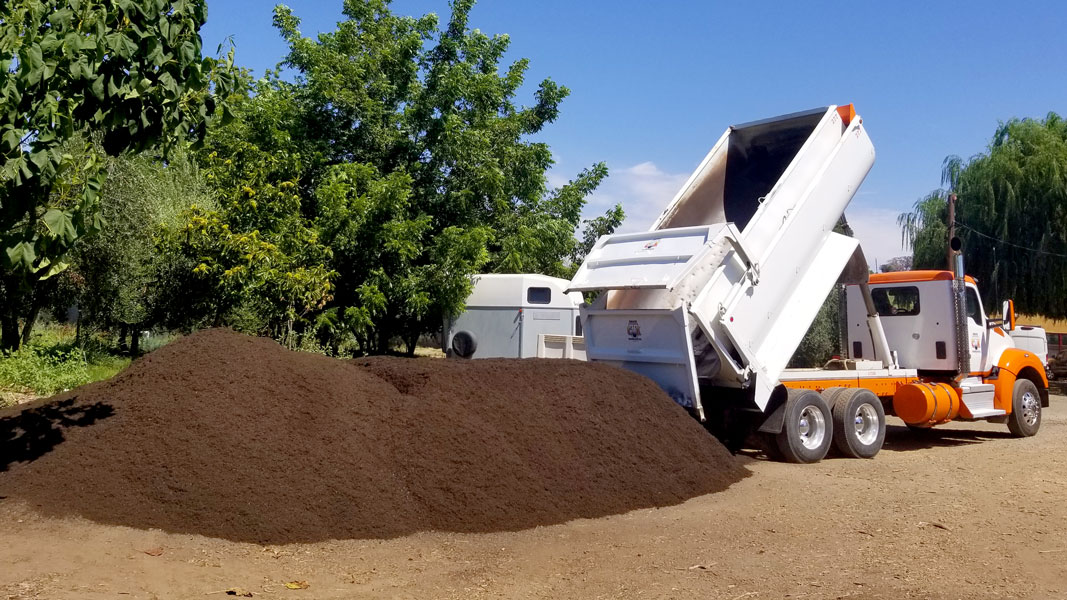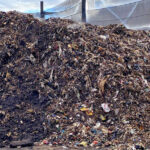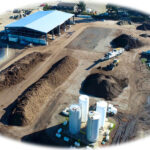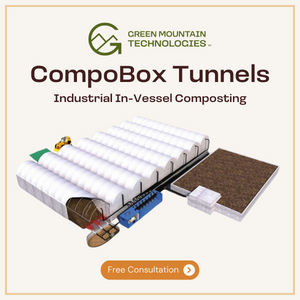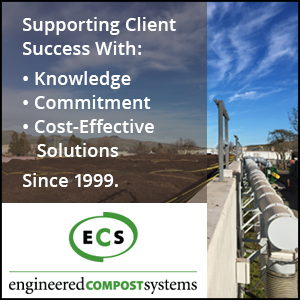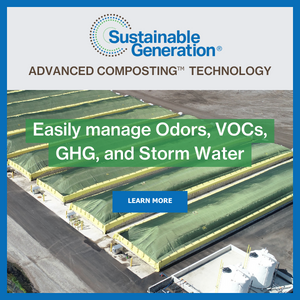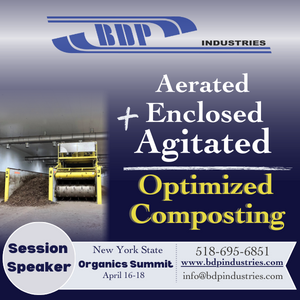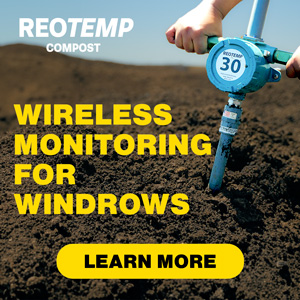Top: Close to one-third of all compost sold in the U.S. by volume goes to conventional and organic agriculture. Photo courtesy of Recology
The Institute for Local Self-Reliance’s (ILSR) Composting for Community Initiative released its new Composting Policy Resource Hub on April 30. The Hub, a suite of policymaking resources to help advance local decentralized composting, features pro-composting policy guidance, materials, and ready-to-use advocacy tools. ILSR notes that the “Policy Resource Hub aims to provide guidance and equip policymakers, advocates, community organizations, compost facility operators, farmers, and others to promote policies to advance community-based, local composting.” The Hub’s Healthy Soils and On-Farm Composting Policy page presents a menu of avenues to address the critical need to build soil health with compost. Included are a healthy soils and compost policy guide, on-farm composting rules and permit exemptions, city and state compost-amended soil requirements, and policies on healthy soils and carbon sequestration.
ILSR’s Composting for Community Initiative’s goal is to support and grow diversified local composting capacity that “rises to meet the pressing need to divert food waste from landfills while creating rich soil, sequestering carbon, facilitating educational opportunities, and supporting good jobs,” explains Brenda Platt, director of the Initiative. “Many policy tools are available to enable the rapid expansion of composting for wasted food. Amplifying and highlighting model local and state policies is a critical component to facilitate widespread replication.”
Another compost policy resource will be available on May 8 when the Composting Consortium, an initiative of Closed Loop Partners’ Center for the Circular Economy, releases its Policy Toolkit, “Why Composting is a Triple Win for States on Budget Savings, Soil Health and Climate.” The Toolkit compiles the Composting Consortium’s policy briefs into one package, capturing its work on labeling standards for compostable packaging, Extended Producer Responsibility (EPR) assessments, and compost end markets. The new addition is the discussion on state policies that can be a critical driver to scale compost production and the procurement of finished compost. “Today, nearly one third of all compost produced in the U.S. is sold to conventional and organic agriculture, making it the largest market by volume,” notes the Composting Consortium. “Though agriculture dominates compost consumption by volume, landscaping remains the most popular market for composters.” Three strategies described in the Toolkit to boost compost end use include adoption of model procurement policies by state and local governments; incentivize compost application, e.g., through tax-exempt purchases; and establish education and technical support about compost utilization.


